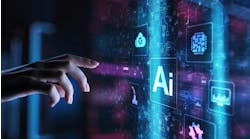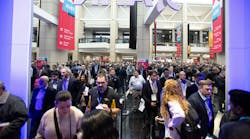Latest from Industry Perspectives
Overheard in Orlando
Sponsored
I think when the historians of the future sit down to write about these times we are living in they might call this the Connection Age. We’ve moved past the Information Age. The new data currency is people, with all their attitudes, preferences, fears and aspirations. And people reveal all those qualities through the connections they make.
There has never been a time when so many people had so many platforms, mediums, and channels through which to make connections—instant, real-time connections—with so many other people. Every call, text, post, reaction, comment, group chat, and tele conference is a connection. Cookies in your browser like bloodhounds on a scent will try to connect you to one advertiser after another based on the sites you visit. There are entire new job categories based on fostering connections (social media managers) or exploiting those connections (influencers).
So why, with all these digital opportunities for connection—on our phones, on our laptops, desktops and pads—do people still crave in-person events like the recent AHR Expo and the WWETT Show? Why spend all that time and trouble? Why spend all that money on hotels and airfare and cab rides?
I think, for one thing, the ubiquity of digital connections has lessened their value. I’m old enough to remember a time when I’d get four or maybe six emails in the course of a day, mainly from co-workers. Each one was something to think over, and usually something worth taking the time to craft a response to. Now? Emails are a plague of locusts that eat time instead of grain. Even with the best filtering software, finding the emails worth responding to is a huge chunk out of my day.
I think also we’ve become wary. Too often what seems like a personal invitation is instead a form, a script, a bot or (more recently) an Artificial Intelligence. Who hasn’t had an experience of texting online trying to resolve some issue, and being several minutes into the conversation before you understand that you’re not talking to another human being at all—let alone a person who has your best interests in mind.
For the plumbing industry I think there are a couple other factors at play. Plumbing is a very hands-on trade. For all the theory that needs to be learned and all the math that needs to be done (and check out our Hydronics & Radiant section to see some interesting examples), at some point you’ve got to get under the sink, get into the mechanical room, and physically turn the wrenches.
So when it comes to a new piece of equipment, a new tool or system, plumbers don’t just want to read the manual or even watch the video; they want to see it in person, hold it in their hands, fiddle with the settings, take it for a spin. That’s why product demos are always one of the most popular parts of shows like AHR or WWETT.
The other aspect of plumbing is that it’s a service that’s always done for a specific someone. Usually it’s a homeowner who will be telling you about their particular situation (usually in detail), but even when working on a large commercial job a plumber knows there are living, breathing human beings who will be drinking from the taps, flushing the toilets, going barefoot on the radiantly-heated floors. And I think that sense of personal connection bleeds into all facets of a plumbing business.
So, for all the things that digital connections can do for us—and don’t get me wrong, there are plenty of good things—I don’t see in-person events going anywhere.
Steve Spaulding | Editor-inChief - CONTRACTOR
Steve Spaulding is Editor-in-Chief for CONTRACTOR Magazine. He has been with the magazine since 1996, and has contributed to Radiant Living, NATE Magazine, and other Endeavor Media properties.


